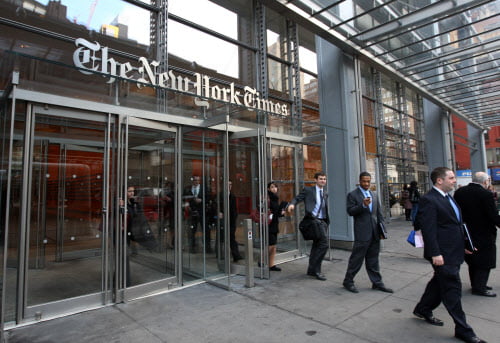Physical Address
304 North Cardinal St.
Dorchester Center, MA 02124
Physical Address
304 North Cardinal St.
Dorchester Center, MA 02124

The New York Times has taken legal action against Microsoft and OpenAI, alleging copyright infringement in a high-profile dispute. The renowned newspaper claims that its content was unlawfully used by OpenAI, the developer behind the popular AI language model, ChatGPT. According to The New York Times, the company used its content without permission for AI training purposes.
The lawsuit asserts that millions of The New York Times’ articles, reports, and other media were utilized by OpenAI, forming the foundation for ChatGPT and other AI services. Over the past few months, The New York Times engaged in negotiations with Microsoft and OpenAI to establish conditions for commercial use of its content. However, the negotiations ultimately failed due to irreconcilable differences, leading The New York Times to pursue legal measures.
The core of the lawsuit revolves around the accusation that OpenAI and Microsoft used The New York Times’ content without proper authorization, resulting in copyright infringement. The New York Times highlights the significant reliance of OpenAI’s AI services, including ChatGPT, on its derived content.
By utilizing The New York Times’ extensive content, OpenAI and Microsoft were able to develop and offer AI services to users. Throughout the negotiation period, The New York Times sought a mutually beneficial agreement with Microsoft and OpenAI. However, failing to reach an agreement, The New York Times made the decision to file a lawsuit to protect its intellectual property rights.
This lawsuit filed by The New York Times against Microsoft and OpenAI underscores the growing concerns surrounding AI training data and copyright infringement. The case raises important questions about ownership of content and fair use in AI technology development. As the legal proceedings progress, the outcome of this lawsuit will have significant implications for the future of AI development and intellectual property protection.
It is evident that the use of copyrighted content in AI development requires clarity and regulations to ensure fair practices. The New York Times’ lawsuit serves as a reminder of the importance of protecting intellectual property rights while fostering innovation in the field of AI.
As this legal battle unfolds, it highlights the need for ongoing discussions and collaborations between media organizations, AI developers, and legal entities to establish guidelines and frameworks that promote ethical and lawful use of content in AI technology.
If you’re wondering where the article came from!
#